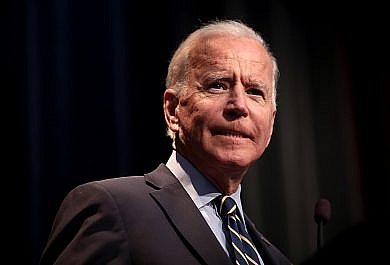More than 2 billion will head to the polls this year to choose new governments in some of the world’s biggest and most important democracies – here’s what you need to know.
Summary
2024 may be the one of the biggest election years in world history. More than 2 billion people will head to the polls this year in 40 countries to choose new governments in some of the world’s biggest and most important democracies – here’s what you need to know.
- The first key election on the calendar is Taiwan’s presidential election on Jan. 13. The race between William Lai, the candidate of the pro-independence ruling party, and Hou Yu-Ih, the candidate of the pro-China opposition, is too close to call. China has said a Lai victory could make a cross-strait conflict more likely given Lai’s pro-American views.
- In terms of population, the biggest contest of the year will be the Indian general election in the spring. Prime Minister Narendra Modi and his right-wing Hindu nationalist party are expected to sweep to victory for the third consecutive time, demonstrating Modi’s broad appeal among India’s Hindu majority despite his government’s efforts to crack down on dissent and minorities.
- While British Prime Minister Rishi Sunak technically has until January 2025 to call the next UK general election, most observers expect Britain will go to the polls in the spring. The ruling Conservative party has trailed the opposition Labour Party for the better part of the last two years, and Labour Leader Keir Starmer is seen as the likely next Prime Minister after nearly 14 years of Conservative government.
- Of course, Americans will vote for their next president in November, along with both houses of Congress, a dozen governorships and a legion of local and state legislative offices. Should both frontrunners win their party’s nomination, this will be the first election since 1892 to feature both the incumbent president and his predecessor on the ballot.
- Polls consistently show a majority of Americans disapprove of both their likely choices for President, Joe Biden and Donald Trump, and would be dissatisfied if the general election was between those two elderly men. However, both men’s strength among voters who participate in primaries makes them the heavy favorites for their party’s nomination, despite their unpopularity.
- The United States is not the only North American country selecting its president this year. This summer, Mexico will determine the successor to left-wing populist President Andrés Manuel López Obrador, often referred to as “AMLO.”
- AMLO’s handpicked successor, Mexico City Mayor Claudia Sheinbaum, is another left-wing populist who plans to continue AMLO’s confrontational line with the United States. Sheinbaum’s biggest competition is conservative opposition Senator Xóchitl Gálvez, who has made AMLO’s failure to tackle the cartels a key part of her platform and wants to repair US-Mexico relations.
![]()
- Time called 2024 “the ultimate election year around the world” and broke down each of the 64 countries voting in 2024. Time covered the Indonesian general election, where three major candidates are competing to govern the world’s most populous Muslim country after President Joko Widodo’s two terms in office.
- Politico’s global elections roundup also highlighted the European Parliament elections, which will be the second-biggest election of the year behind the Indian general election in terms of population. Right-wing populists are on the rise in Europe and are expected to make big gains.
- CNN focused its attention on South Asia, where nearly 2 billion people in four countries – India, Pakistan, Bangladesh and Sri Lanka – will vote for new governments. The ruling party is favored in India and Bangladesh, while Pakistan’s election has been disrupted by the ouster and imprisonment of popular former prime minister Imran Khan, creating an unstable and unpredictable political situation for the populous nuclear power sandwiched between India and Afghanistan.
![]()
- The Wall Street Journal noted that more elections are possible than those currently scheduled. The left-wing Spanish and German governments are both being held together by shaky coalition agreements and may not survive the year, while in Japan Prime Minister Fumio Kishida is deeply unpopular and may not survive until the next election, which is scheduled for 2025.
- The Telegraph called 2024 “the biggest ever year for democracy around the world,” while observing that not every election is happening in a democratic country. Russian President Vladimir Putin, for example, is up for reelection this spring, but his intolerance for opposition and authoritarian rule have made his reelection a virtual certainty.
- The Globe and Mail looked back a half-century to 1974, the last comparable election year. Doug Saunders observed, “Today, we are in the midst of a democratic backslide almost approaching the scale of the one that reached its nadir in 1974, as democracy’s third wave enters a trough. But there are a number of reasons to believe that 2024 could be another 1974 in the more optimistic sense – that is, the end of a decline, or perhaps the beginning of a fourth wave.”
© Dominic Moore, 2023






